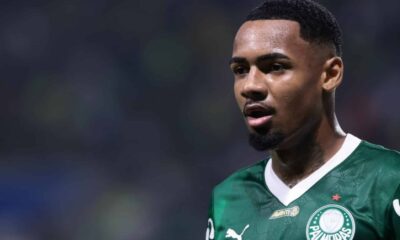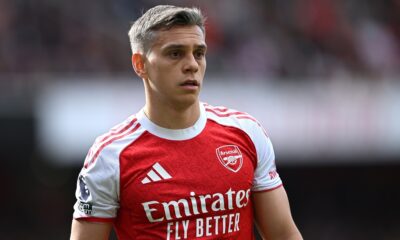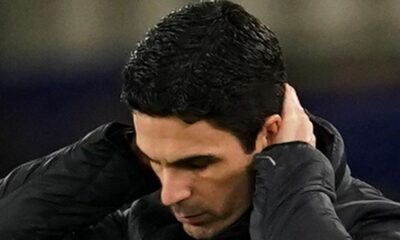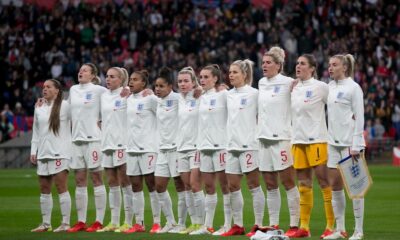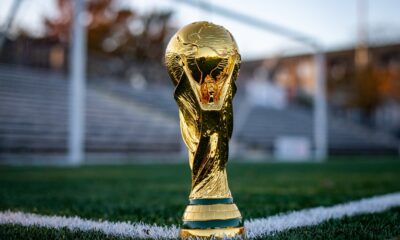International Football
The End of Emile for England
By Thomas Curtis
Emile Heskey announced his international retirement this week, after 62 appearances in an England shirt. After England’s dismal performance in South Africa, and the FA’s promise of a shake-up within the squad, the decision on Heskey’s international future may already have been made. With the FA’s willingness to drop some of the South Africa flops, his chances of making the squad for Euro 2012 were already slim. Coupled with the desire to see England’s younger players emerge at international level, it is highly unlikely that that the 32 year old would have been considered for taking part in the qualifiers, let alone the tournament itself in two years time.
At times a frustrating player to watch, often the villain rather than the hero, his inclusion in England squads were always the cause of debate, with people fighting for and against his cause. News of his retirement may be welcome be for some, but there has always been an army of admirers fighting the big striker’s corner. Applauded for his strength and ability to bring others into the play, his failure to hit the net regularly was a constant worry for England fans. Many supporters of Heskey claimed that he offered England a new dimension, his unselfish play allowed players such as Wayne Rooney and Michael Owen to flourish, aiding the team by providing other strikers the chance to take the headlines as the hero. His critics would highlight his lack of confidence in front of goal, and that he was never the most prolific of strikers for his country, notching only seven goals in all internationals. Despite the debate between the fans, Heskey’s efforts were frequently rewarded by international managers, and he was picked to represent his country by six different coaches who all obviously believed he was worthy of inclusion, goals or not.
Since his emergence as a teenage powerhouse striker at Leicester City, Heskey has been backed with a strong reputation as a hard worker and a bullish target man, but his unselfish play has long been seen by some as little more than an excuse for his failure to put the ball in the net. His selflessness often deserved the reward of scoring, but his inability to finish opportunities that his strike partners would relish remained the biggest talking point when his name appeared in England’s starting eleven.
Frozen out of the national set-up for long periods under Steve McClaren, Heskey was used mainly as cover for injuries. The partnership between ex-Liverpool team-mates Heskey and Michael Owen was rekindled at international level in 2007 for the EURO 2008 Qualifiers against Israel and Russia. This was at the reported request of Owen, who believed that Heskey’s appearance alongside him would bring the best out of his own play. Heskey was a favourite of Capello prior to the World Cup, appearing in most of the team selections for the qualifiers, scoring only once against Kazakhstan. Heskey’s lack of international goals was momentarily forgotten as other players delivered the goods, Wayne Rooney in particular, who bagged nine and finished as second top scorer in the qualifiers for South Africa. Despite the constant debate over his goal tally, Heskey’s England career saw him feature in some of the so-called ‘golden generations’ most celebrated performances. He played (and scored) in the 1-5 thrashing of Germany in Munich 2001, and was present as England beat Argentina through David Beckham’s penalty in 2002. He featured in both drubbings of Croatia, the 1-4 win in Zagreb and the 5-1 win at Wembley that ultimately secured England’s qualification for World Cup 2010. It is also worth noting that it was Heskey’s pass that led to Gerrard putting England ahead against the USA in Rustenburg.
His involvement in the positive moments of England history will be matched by a list of his negatives, mainly ones that point out his biggest flaw: the lack of goals. If Heskey’s favoured position had been a left winger and not a centre forward, where the emphasis is on scoring goals, his reputation and style of play may well have been better accepted by the English support. His appearance in five major tournaments for England, and his effort and pride at wearing the England shirt will sadly be overshadowed by the statistics that represent him an inconsistent international performer, with a distinct lack of confidence in front of goal. With this and his age in mind, and having heard Capello already announce his list of players to watch for the future, Heskey’s decision to call time on his England career at this point makes the future easier for both himself and Capello.
How will you remember Heskey in an England shirt?






